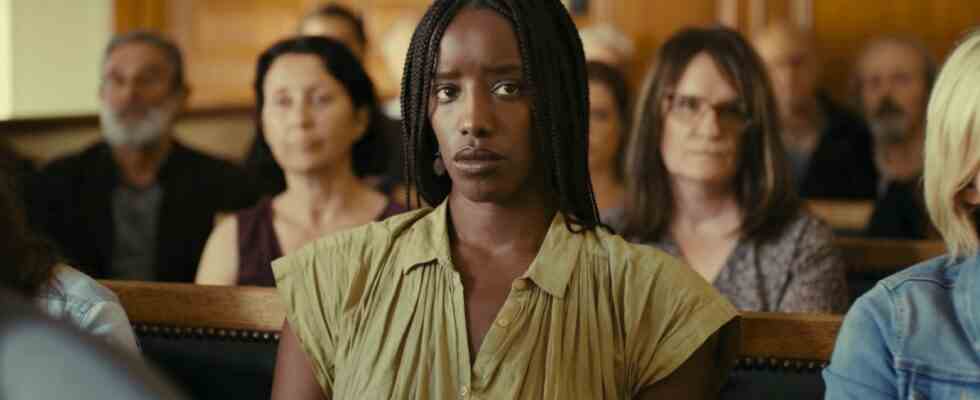At the end, the lawyer speaks her plea directly into the camera, even the judge folds her hands. At this moment, the court hearing becomes a mass. The act of the young woman in the dock remains inexplicable. And yet a deeper understanding of the Senegalese woman named Laurence Coly, a philosophy student in Paris, who left her fifteen-month-old daughter on the Atlantic beach to the tide and thus to death, should emerge.
“Saint Omer” is the first feature film by Alice Diop, whose parents are also from Senegal. In the largely white, male-dominated French film scene, Diop is a strong, hopefully future-oriented exception. Most recently, in “We”, the brilliant documentary filmmaker interwoven the stories of people on the outskirts of Paris, along a high-speed train line in the north of the metropolis.
Now she is turning to fiction for the first time – for the resulting film she has won four awards at the Venice Film Festival, in France there was the prestigious Jean Prix Vigo and a César for best first work. Possibly also because the fiction is based on true facts: The university teacher and author Rama (Kayije Kagame) drives to the small town of Saint Omer in northern France to attend a trial against Coly (Guslagie Malanda) – just like Alice Diop does the real trial against Fabienne Cabou witnessed, on whose case the film is based. The film takes place exclusively in the courtroom, with few interruptions, and mostly uses the same few shots, in which each character has her own space: the judge, the lawyer, the accused, and Rama, as an observer in the auditorium.
The accused of infanticide hopes to get clarity about herself through the process
At the beginning, Rama shows her students a film about women who were shorn after World War II as punishment for their contact with German soldiers. She reads a text by Marguerite Duras to show how the writer has “sublimated” the suffering of women. The reduced, theatrical setting of Diops Films has a similar effect. Here, too, reality should point beyond itself and thereby be ennobled.
However, this transformation only succeeds to a limited extent. Through the frontal shots, reflections follow one another in which the viewer should recognize themselves in the viewer, what is different and what is not connected dissolves into one another, the fate of the shorn woman is reflected in the fate of the Senegalese woman. The accused tells how she got pregnant unintentionally; Rama is also expecting a child. Both have dark skin. And both have a difficult relationship with their mothers.
The accused of infanticide hopes to get clarity about herself through the process. She speaks of being bewitched, a Senegalese Joan of Arc under the influence of psychic, inexplicable powers. Cultural differences appear in their statements, the racism of the white French. Then there is the family pressure to succeed that weighs on dark-skinned women in white-dominated milieus, possible depression and a toxic ex-partner, the father of the child.
But all these are just discourses. Coly repeatedly emphasizes that he cannot describe things more precisely. She wanted to work on Ludwig Wittgenstein, the philosopher of language. That language is a boundary and an impenetrable mask that always veils the things it speaks about is the only truth revealed here.
But it is precisely this mystery that should overwhelm us with all its might. At the end, the lawyer, addressed to the audience of the trial and the film, preaches about an unbreakable bond between mothers and daughters that goes beyond infanticide and in which all mothers and daughters should recognize themselves. The film thus amounts to a symbiotic union with its viewers, in which they find themselves as if in the arms of a strong mother.
Saint Omer, France 2022 – Director: Alice Diop. Book: Diop, Amrita David, Marie Ndiaye. Camera: Claire Mathon. With Kayije Kagame, Guslagie Malanda, Valérie Dreville. Grand film, 123 minutes. Theatrical release: March 9, 2023.

